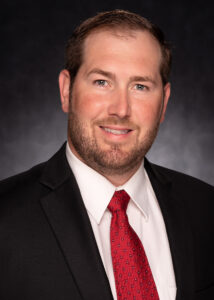Big Waves, Little Victims – The Opioid Crisis’s Effect on Our Most Vulnerable Population – Children
- December 18, 2023
- By: Dr. Samuel Selby, Dr. Priya Bui, Jared Ivan and Ryan White
- Community

“Help my child!” a frantic mother calls out in the Emergency Department, holding her limp toddler. The medical team rushes to her side to see a child who is not breathing. They quickly assist the child by forcing oxygen into his lungs and soon his color returns.
“Mom, what happened before this? Was he sick? Are there any medications in the home?” A barrage of questions ensues as the team searches for the cause of his illness. “No, nothing, he is healthy.” Nothing points to the cause until they look into the child’s eye and see a telltale sign – pupils the size of a period.
“Administer Narcan!” the physician calls out. Moments later, the child begins to breathe and awaken to a tearful mother, only moments later the outcome could have been catastrophic.
Tarrant County has grappled with the multiple waves of the opioid crisis for three decades, but Fentanyl has cascaded into its own unique crisis. Between 2019 and 2020, DFW saw a 400% increase in fentanyl-related deaths. We see tragic stories involving adults, high school students, middle school students, and toddlers overdosing on fentanyl, many in their own homes.
In the 1990s unscrupulous marketing and overprescribing of opioids – were followed by a second wave of heroin abuse in the 2010’s laying the groundwork for synthetics like fentanyl. Fentanyl and other synthetic opioids are insidious with some synthetics 50 to 100 times more potent than heroin.

What is specifically happening in Tarrant County? Based on the current data from North Texas Poison Control between the years 2018 to 2022 in children 0-12 years old there were four reported ingestions of Fentanyl. For individuals 13-18 during the same period, there were 11 reported cases of Fentanyl ingestions whether intentional or unintentional.
This data is significant because it shows how little insight we have into the current effects of the Fentanyl crisis on Tarrant County’s pediatric population. The CDC observed a 109% increase in pediatric opioid overdoses from 2019 to 2021.
Deaths involving illicitly manufactured fentanyl increased by 182% in this age group. Opioids accounted for 90% of the overdose deaths, and illicitly manufactured fentanyl accounted for 84%. Nearly a quarter of the deaths involved counterfeit pills.
Unfortunately, there is a widespread lack of understanding about the opioid epidemic and its effect on children. Opioids were responsible for 24% of poison-related deaths in 2015 but now have risen to 54% as of 2018.

This high potency means small doses easily produce a high and tragically an overdose. Another contributor to their ubiquity is that synthetic narcotics are easily ingested or absorbed through the skin, making them more accessible to young toddlers and infants or “laced” for effect into other drugs. Recent studies show southern states bearing the brunt of reported opioid overdoses, with most cases occurring in metropolitan areas with populations exceeding 250,000.
DFW is not the epicenter but contributes significantly to fentanyl-related deaths. Multiple school districts in North Texas have been affected, leading to discussions about the need for readily available naloxone given to unresponsive students.
It’s alarming to note that possibly 1 in 8 children in the United States lives with a caregiver who has a substance abuse disorder, significantly increasing the child’s risk of exposure purposefully or accidentally.
This epidemic will not disappear overnight. As it continues infiltrating our classrooms, homes, and daily lives, we can’t stand by and watch our children be destroyed by this monstrous epidemic. Whether a child finding a grandparent’s fentanyl patch to an inquisitive teen who ingests a potent counterfeit, we as a community, owe it to them to find a solution.

We need more reporting, more cooperation, and more members of the community to step up. The wave has rolled in, and the tide is rising, but it’s not too late to protect these “little victims.”
About the Authors: Dr. Sam Selby is a pediatric emergency medicine physician at Cook Children’s Hospital and an assistant professor at the Texas College of Osteopathic Medicine. He is passionate about improving patient care and advancing the field of medicine through education and outreach.
Student Doctors Jared Ivan and Ryan White are fourth-year, Medical Students at the Texas College of Osteopathic Medicine.
Dr. Priya Bui, DO is the Chair of the Department of Pediatrics and Women’s Health at the Texas College of Osteopathic Medicine at the University of North Texas Health Science Center and is a practicing pediatrician.






Social media